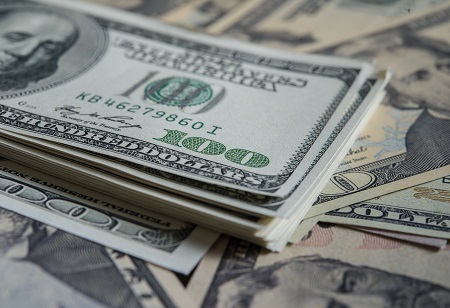
The dollar remained relatively stable on Tuesday, awaiting crucial U.S. inflation data later in the day. Meanwhile, the yen strengthened near a one-month high amid growing expectations that the Bank of Japan (BOJ) could exit negative interest rates soon. In the cryptocurrency space, bitcoin hovered above $72,000, close to breaking the previous day's record high.
The euro retreated from a roughly two-month high against the dollar, last trading at $1.0931. Sterling rose slightly to $1.2822, but it was still some distance away from Friday's more than seven-month peak. Currency movements were restrained, and the dollar paused its recent decline ahead of the U.S. inflation reading, providing further insight into when the Federal Reserve might begin its expected rate easing cycle this year.
Analysts anticipate core consumer prices to have risen 0.3% on a monthly basis in February. Investors will closely monitor any upward surprises, similar to January, which could affect the anticipated pace of Fed rate cuts. The Australian dollar edged up slightly to $0.6615, while the New Zealand dollar dipped to $0.61685. The dollar index was stable at 102.80, having touched a roughly two-month low of 102.33 last week.
The greenback's decline has been driven by increasing expectations that the Fed might start cutting rates by June. This sentiment solidified after comments from Fed Chair Jerome Powell last week and Friday's jobs data indicating softening underlying labor market conditions in the U.S.
Speculation about the BOJ potentially moving away from ultra-easy policy settings at its upcoming policy meeting supported the yen in Asia. Against the dollar, the yen steadied at 146.94, not far from the previous day's one-month high of 146.48. The BOJ's refraining from purchasing Japanese exchange-traded funds on Monday, despite a significant drop in domestic shares, further fueled expectations of a policy shift. Japan has maintained negative short-term interest rates and a massive stimulus program to stimulate its economy for years.
We use cookies to ensure you get the best experience on our website. Read more...